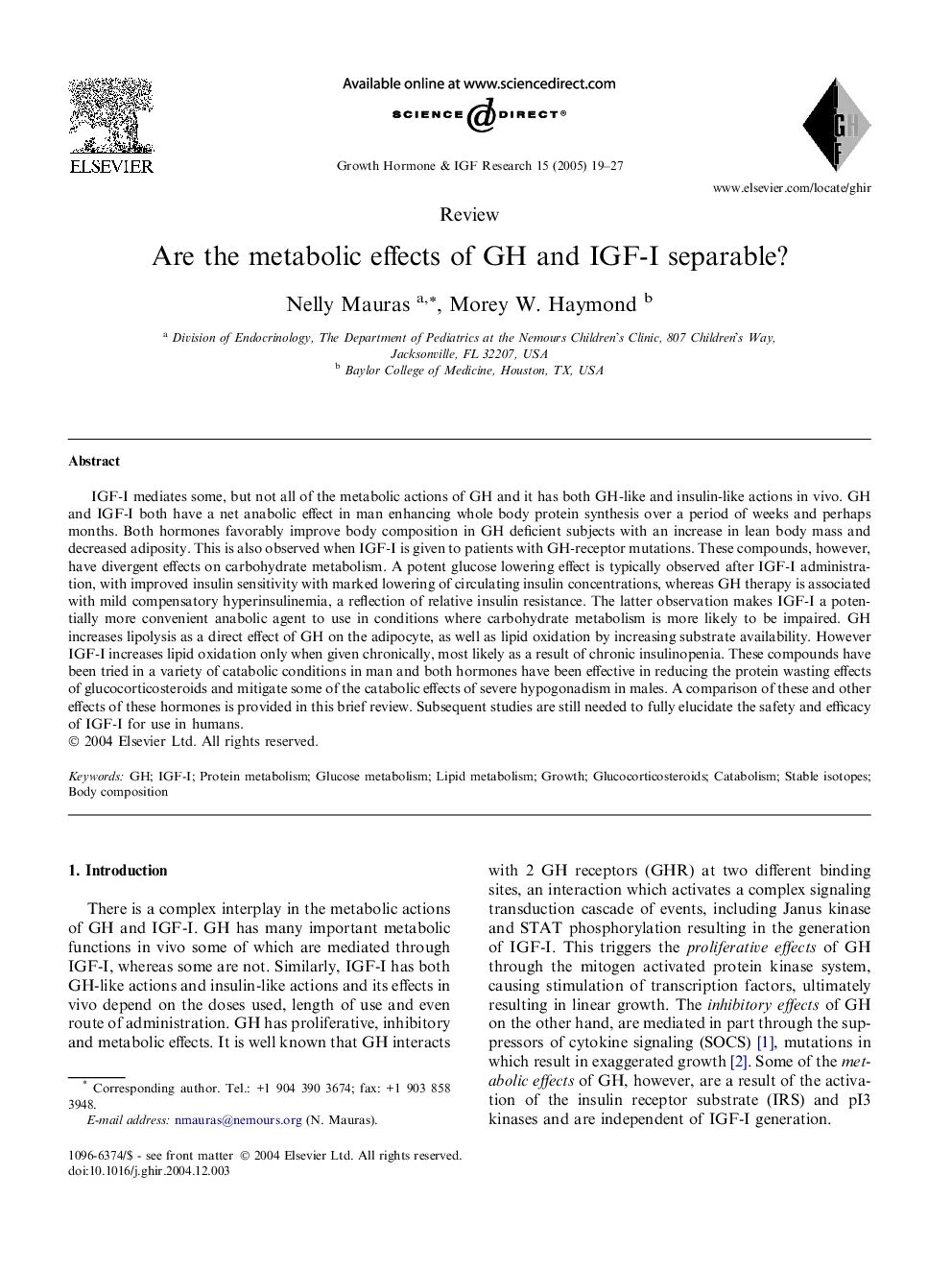| Article ID | Journal | Published Year | Pages | File Type |
|---|---|---|---|---|
| 9114619 | Growth Hormone & IGF Research | 2005 | 9 Pages |
Abstract
IGF-I mediates some, but not all of the metabolic actions of GH and it has both GH-like and insulin-like actions in vivo. GH and IGF-I both have a net anabolic effect in man enhancing whole body protein synthesis over a period of weeks and perhaps months. Both hormones favorably improve body composition in GH deficient subjects with an increase in lean body mass and decreased adiposity. This is also observed when IGF-I is given to patients with GH-receptor mutations. These compounds, however, have divergent effects on carbohydrate metabolism. A potent glucose lowering effect is typically observed after IGF-I administration, with improved insulin sensitivity with marked lowering of circulating insulin concentrations, whereas GH therapy is associated with mild compensatory hyperinsulinemia, a reflection of relative insulin resistance. The latter observation makes IGF-I a potentially more convenient anabolic agent to use in conditions where carbohydrate metabolism is more likely to be impaired. GH increases lipolysis as a direct effect of GH on the adipocyte, as well as lipid oxidation by increasing substrate availability. However IGF-I increases lipid oxidation only when given chronically, most likely as a result of chronic insulinopenia. These compounds have been tried in a variety of catabolic conditions in man and both hormones have been effective in reducing the protein wasting effects of glucocorticosteroids and mitigate some of the catabolic effects of severe hypogonadism in males. A comparison of these and other effects of these hormones is provided in this brief review. Subsequent studies are still needed to fully elucidate the safety and efficacy of IGF-I for use in humans.
Keywords
Related Topics
Life Sciences
Biochemistry, Genetics and Molecular Biology
Endocrinology
Authors
Nelly Mauras, Morey W. Haymond,
